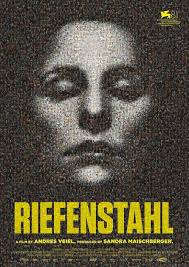Displaying items by tag: Andres Veiel
Riefenstahl

RIEFENSTAHL
Germany, 2024, 115 minutes, Colour.
Directed by Andres Veiel.
Audiences interested in the German film industry but, especially for those who respond to the name of the 1930s director, Leni Riefenstahl, this documentary, Riefenstahl, is a significant documentary. She became famous in the mid 1930s as a propagandist for the Third Reich, association with Hitler, filming the vast Nuremberg rally of 1934, Triumph of the Will, as well as her filming of the Berlin Olympiad, 1936.
The documentary is filled with excerpts from her films, comments about her technique, camera placement, the vastness of the sets filled with Nazi enthusiasts, troops, her sitting in the editing box and defining the look and tone of her films. Evident is the awareness of racial superiority in the focusing on the Aryan German people, the superior bodies of the athletes at the Olympics (including US African-American Jesse Owens). Riefenstahl provides significant resources for appreciating these films.
However, there is also the issue of her Nazi sympathies, relationship with Goebbels, Hitler, the production of her films, the screenings, the repercussions. Riefenstahl in fact, born 1902, died in 2001, almost 70 years after her films, often embroiled in discussions, arguments about her political affiliations, sympathies, this film drawing on documentaries about her, quite a number of excerpts from television interviews, harsh questions, condemnations, her self-defence.
While there is a lot of documentation from the 1930s and 1940s, including clips from her famous mountain climbing film features, singing her with Goebbels, with Hitler, her being part of the National’s response to national Socialism at the time, there is a great deal of excerpts from previous documentaries as well as television interviews, especially by the 1970s and onwards, her being interrogated about her Nazi sympathies. There is some ambiguity in the attitude of the director, presenting all this material, but seemingly slanting it, according to some viewers, to a condemnation of Riefenstahl.
There are also sections of this documentary on her visits to Africa, her photography, her publications, her anthropological interests – especially in comparison with or contrast to her earlier films and support of Hitler.
Not the last word in judgement on Leni Riefenstahl but certainly a contribution to appreciating her skills in filmmaking and the questions of her perspectives in the 1930s and 1940s.